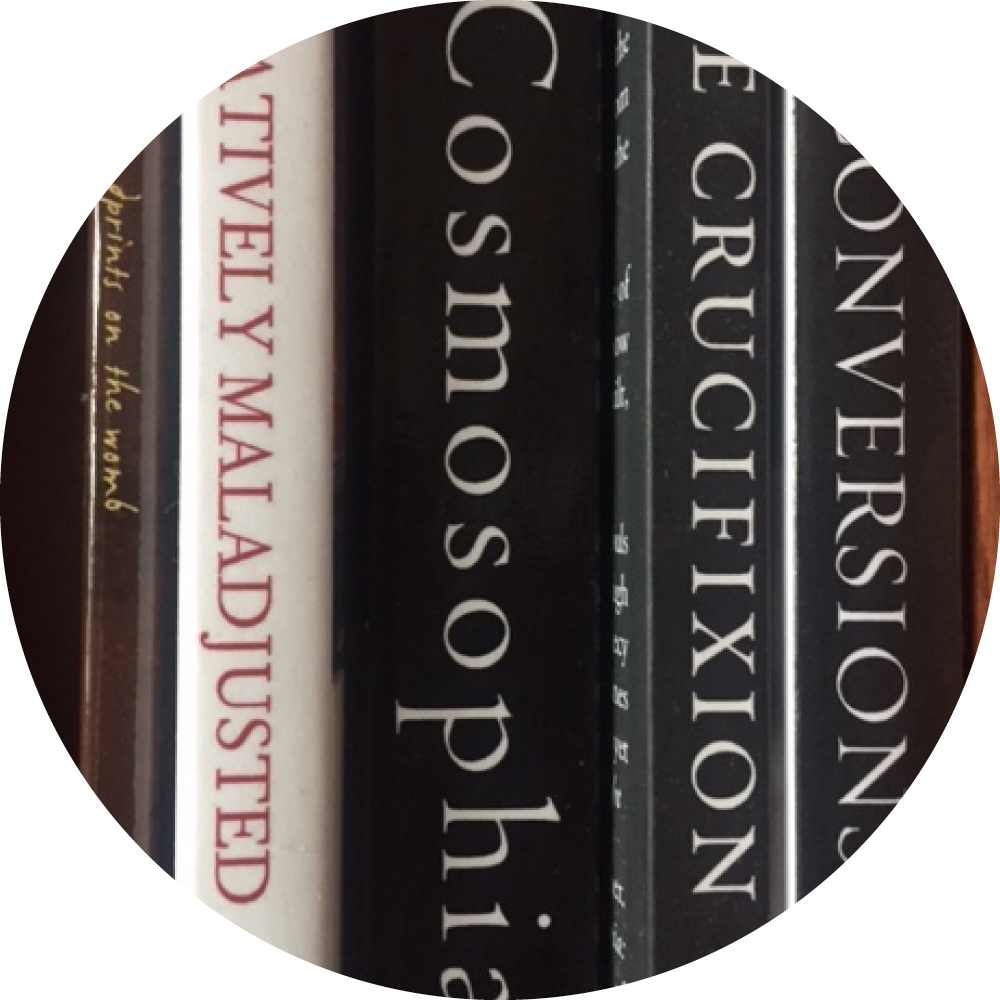A Pedagogy of Protest:
[For the Presidents of Universities
with Pro-Palestinian Encampments]
By Theodore Richards
At the University of Chicago, not far from where I live, there’s an encampment protesting the assault on Gaza. I decided to visit because I’d heard there was conflict and unrest. What’s more, the school president declared it was to be shut down. Enough is enough, he’d more or less said. The encampment was getting in the way of the real business of the University.
I will return to what that “business” might be. But first, let me describe what I saw. Contrary to some complaints I’d heard, the encampment was neither loud nor obstructive. There were lots of people, including families and children, and an assortment of tents, concentrated in the center of the main quad, not in any way impeding a person’s ability to walk to any building. There were tables sharing information, a Jewish group opposing Zionism, food being shared. The students seemed at peace, happy even. Many were reading on the grass. It was a beautiful, warm, sunny day; Palestinian flags, hung haphazardly about, waved in the slight breeze.
On the outskirts of the encampment, there were a series of American flags. Counter-demonstrators had put them up. They’d come to disrupt the peaceful protest, shouting pro-American slogans at the demonstrators, whom, I can only assume, they saw as unpatriotic for opposing the United States’ support of Israel.
Long before recent events, I have understood the injustice of the treatment of the Palestinian people. Years ago, I traveled across the region. I met Palestinian refugees who told me that they had nothing against Jewish people but simply wanted all of Palestine to be a single, democratic state for Jews and Arabs. This – not the eradication of Jewish people as is often falsely claimed – is what they mean by “the river to the sea.” They told me how they call Israel “the 51st state” because of how the United States is complicit in their oppression. I crossed the border at Rafah, passed through Gaza, saw how controlled and demeaned Palestinians were, saw the barbed wire keeping them in a virtual prison. I, an American, had more rights in their homeland than they.
I came to understand that there are many Israelis and Palestinians who want freedom and equality for all in the region, who reject violence and reject the settlements. But I also saw that there is a powerful right-wing movement, led by Netanyahu, that wants to eradicate the Palestinian people. They have done this for decades as they’ve cruelly evicted Palestinians from their homes to make room for settlements in the West Bank. And it is clear now that they are trying to do this now in Gaza. It’s not that Zionism is wrong per se; it is that it became oppressive when Israel became a highly militarized nation-state committed to the removal or extermination of the Palestinian people. We can reasonably disagree on many things, but not on murdering children. Not on genocide.
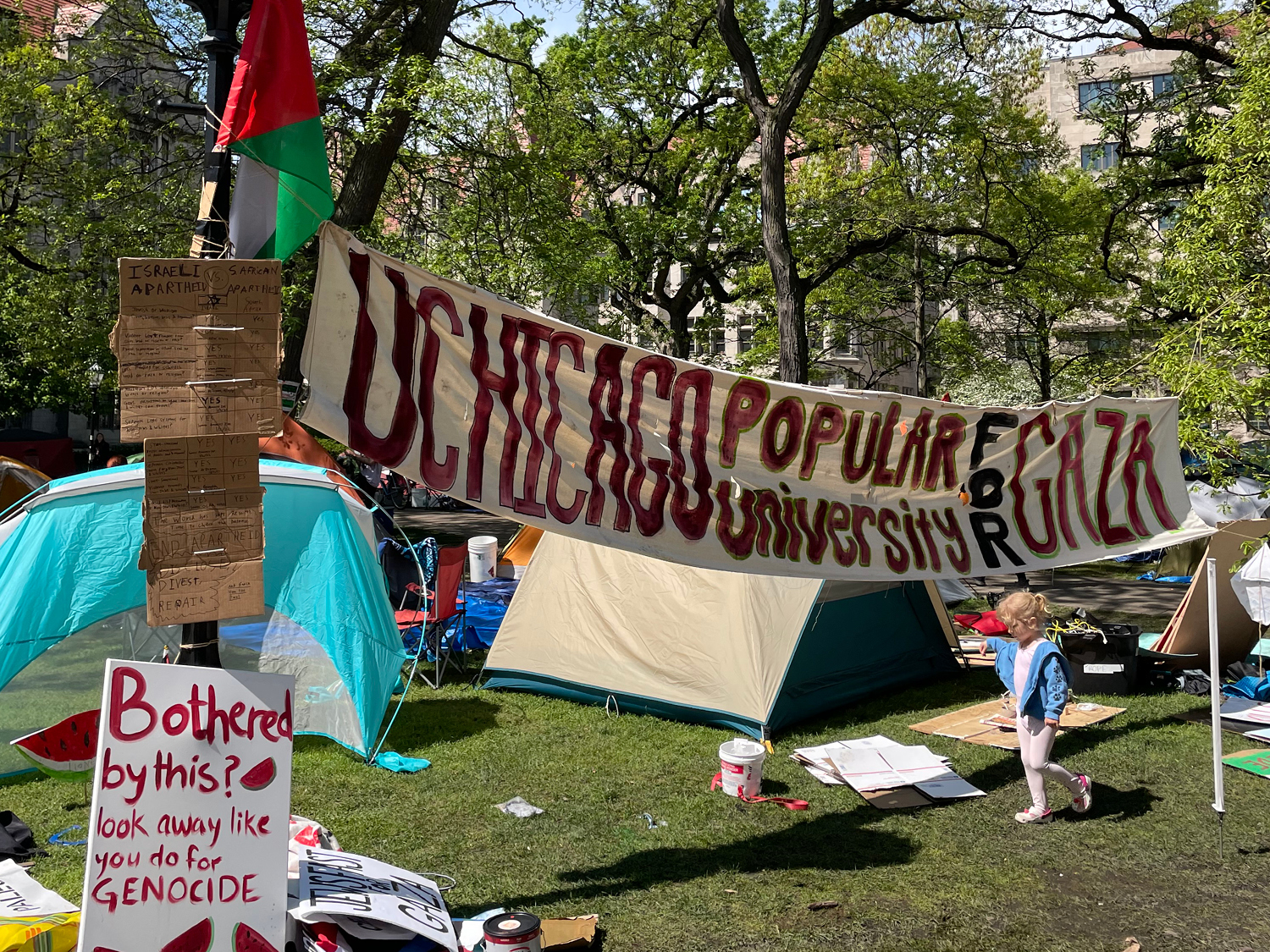
The critique of the encampments has been that they are violent and that they are anti-semitic. First, I will address the violence. The truth is simply that, where there has been violence, it has come from right-wing agitators and police. And this violence has been invited by university presidents. The second claim is more serious. Legitimate anti-semitism, like all forms of bigotry and racism, should not be tolerated. But let’s understand what constitutes legitimate anti-semitism. Holocaust denial is anti-semitic; tropes about Jews running the world are anti-semitic. As someone who grew up attending Bat Mitzvahs and Bar Mitzvahs, who sent children to a Jewish school, who studied with rabbis, I’m perplexed and horrified at the persistence of such ideas. On the other hand, criticizing the state of Israel or Netanyahu is not inherently anti-semitic, any more than criticizing the government or military of Botswana is inherently racist or criticizing the Saudi monarchy is inherently Islamophobic. Opposing Zionism in favor of a single democracy for Jews and Arabs – a position held by many Jews and Arabs alike – is not anti-semitic. Shouting “anti-semite” about such things is not a serious effort to combat anti-semitism; it is a cynical attempt to shut down a real conversation before it starts. And it harms the effort to combat real anti-semitism, which any reasonable and fair-minded person would oppose.
Most of the center-left opinion pieces I’ve read and public statements I’ve heard about the protests – invariably from people of older generations – bemoan the tenor of the public discourse. And I believe there’s a legitimate concern here about how we engage in dialogue on all sides. In fact, I am often frustrated when people I agree with, or might agree with, can only offer cliches and slogans and condemnations rather than arguments or ideas. On the left, there is sometimes a focus on ideological purity rather than good faith effort to engage in dialogue. I believe that it’s possible to have reasonable disagreements with people about many of the issues. Of course, we can have no reasonable disagreement about racism or anti-semitism; we can have no reasonable disagreement about the humanity of Gazans and the morality of blowing children to bits. But there ought to be a way to discuss an issue like divestment in which one side isn’t screaming – falsely, in my opinion – “anti-semite” and the other isn’t screaming – also falsely – “imperialist” in a way that simplistically conflates Western colonialism and the Jewish experience. This can and should be critiqued.
But complaints about tone shouldn’t be more important than the lives of Gazan children to presidents of universities – or presidents of nation states funding genocide.
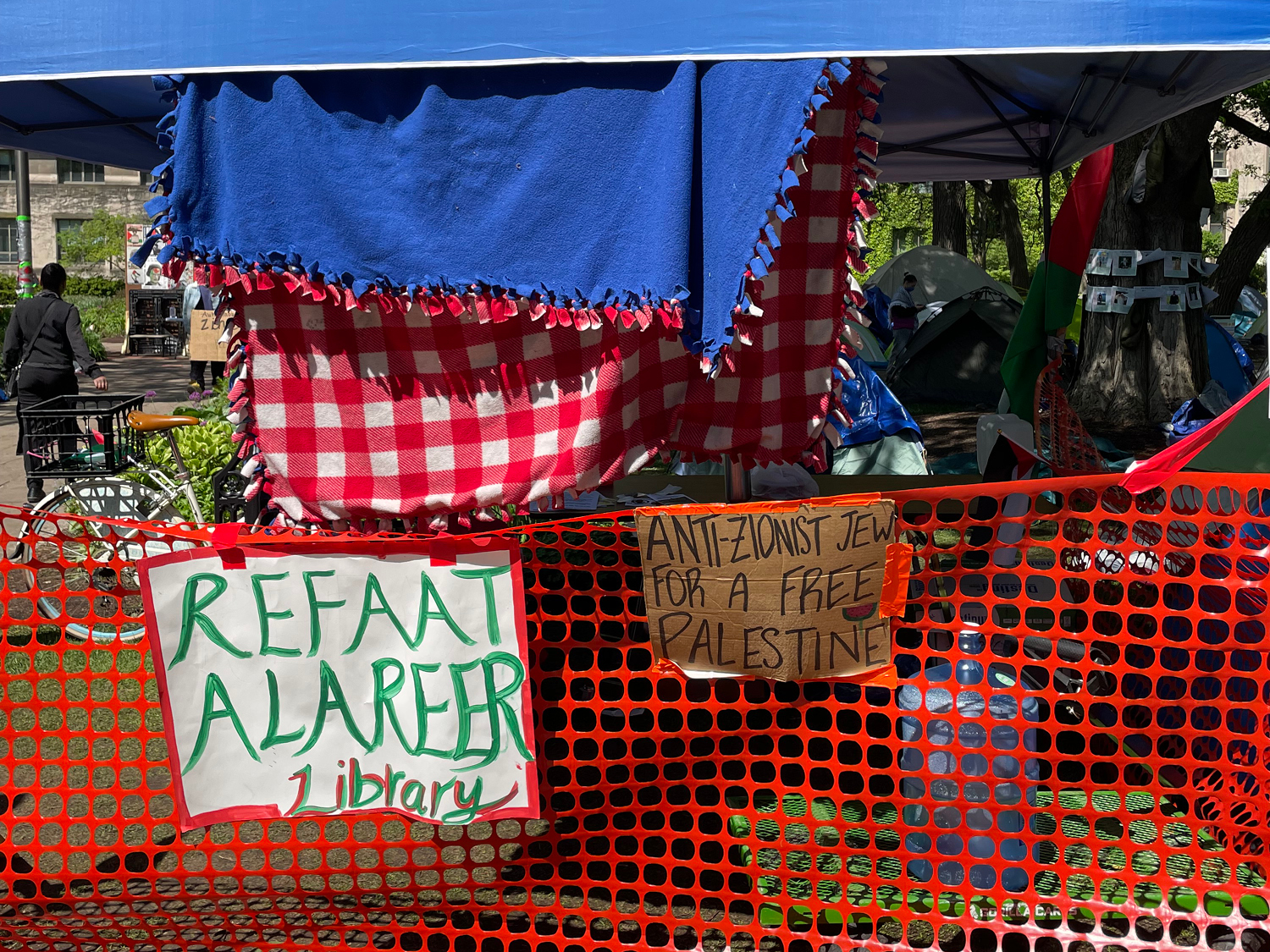
And this gets me to our esteemed presidents. The criticisms levied by some members of the media, as well as Biden and a number of University presidents, are both tone-deaf and history-blind. While children in Gaza are starved and murdered, is this really where we want to focus our energy? While fully formed adults make the decision to support genocide, do we really want to waste a platform to play tone-police to nineteen-year-olds? Did we learn nothing from the protest movements of the 60s, which received the same critiques? No reasonable person today would say the students opposing the Vietnam War or Jim Crow were wrong, even if they, like their counterparts today, at times got the approach wrong. Do we really think that tomorrow people will look back on those who stood up against a genocide their government supported and say that they were wrong because they were… noisy and impolite?
This might be a moment to ask why: Why, now, are so many young people angry enough to risk their futures over a conflict on the other side of the planet? This is for them, not me, to answer. But I suspect that there is a sense of a deeper betrayal among this generation who have grown up in an age of uncertainty and debt, of Trump and George Floyd, of pandemic and runaway climate change. I wonder why our University presidents specifically, and older generations more broadly, aren’t inquiring as to how we might have failed them rather than lecturing them about tone.
Politicians will be political; older journalists will critique the youth. But universities, I’d suggest, play a special role in society. We must err on the side of allowing protests on campuses not in spite of the mistakes they’ll make, but because of the mistakes. This is how our youth work through the problems of their world; this work of trying and fumbling – but, crucially, of not turning away – is an essential part of an authentic education. I learned as much passing through Gaza or meeting with refugees in Jordan as I did in the classes I took when I too, many years ago, was an undergraduate at the University of Chicago. The university must foster this engagement because this is how it serves its role in a democracy. In this way, our university presidents are failing our students, and democracy, badly. I strongly disagree with the counter-protesters, but they ought to be permitted to engage as long as it’s not violent (as it was at UCLA) or racist (as was the case at Ole Miss), just as genuine violence or antisemitism of the protesters should also be forbidden.
Of course, there is always going to be a tension around protest, and we must accept that the protester, when most effective, plays with the edge of what is acceptable and forbidden. So risking arrest is part of the deal. But my point here is about the role of the University in society, the campus as an educational space. A campus as a whole is the classroom, not just a park to pass through on the way to class. University presidents sometimes pretend to be educators. And at times they are. They should be. But when they call the cops on their own students, they are revealing themselves to be something else, the sort of gatekeepers that they are often accused of being, making deals with politicians and corporations and generals and real estate interests, peddling power rather than cultivating wisdom.
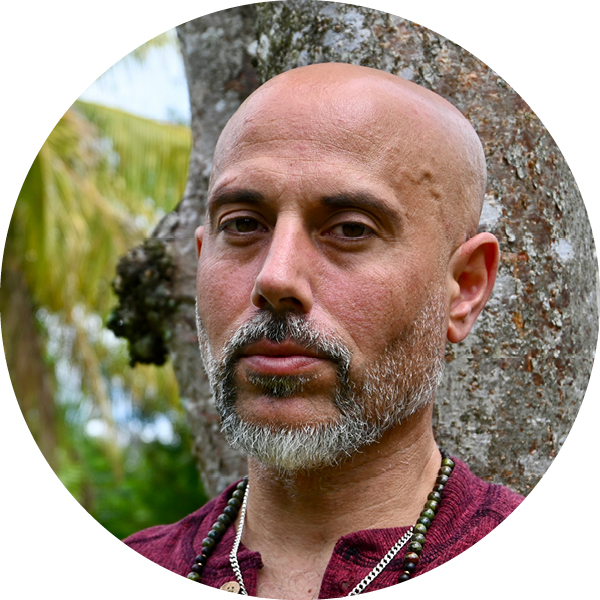
Re-sources
Re-Imagining Education

Empowering educators to take a deeper look at the stories told in our schools and to re-imagine them in transformative and
nurturing learning spaces.
Learning Opportunities
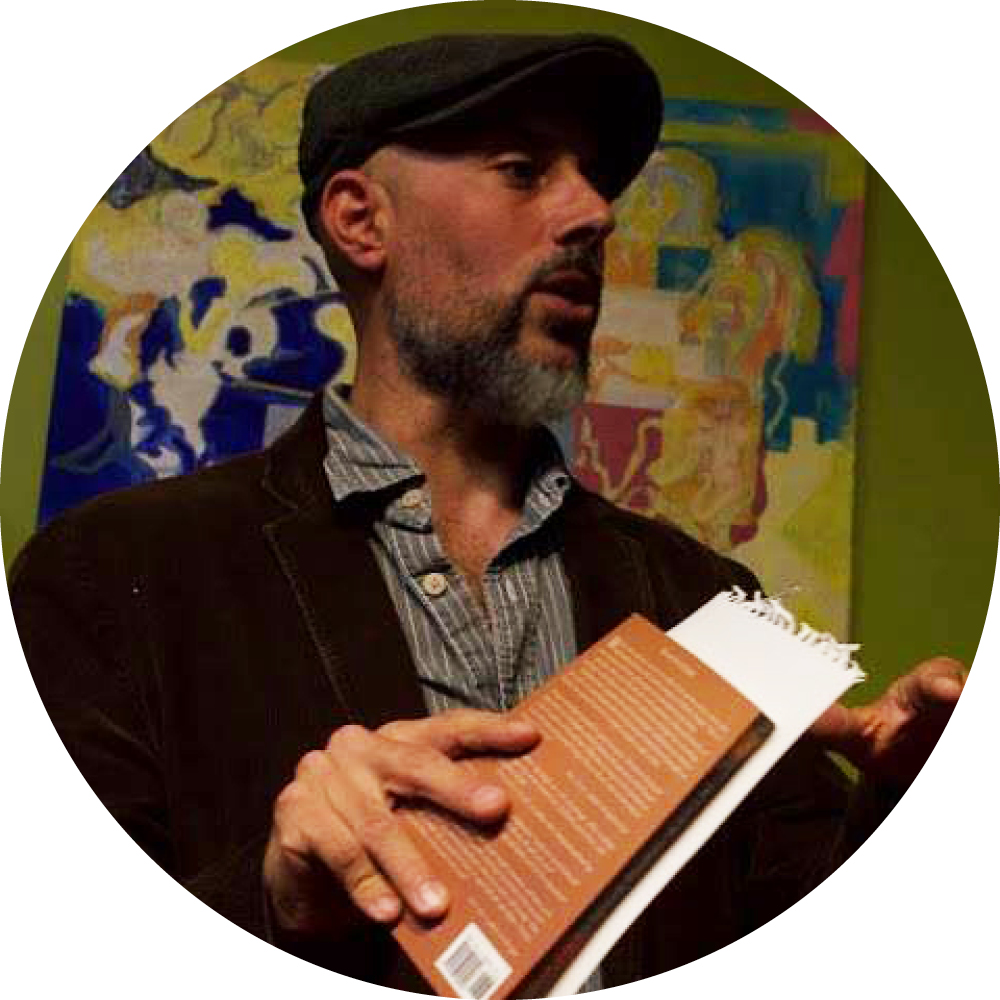
Classes, workshops, and lectures that help to empower people to re-imagine who they are and their place in the world.
CWP

The Chicago Wisdom Project offers a alternative to the industrial and corporate models of education that have become increasingly prevalent in the American educational landscape.
